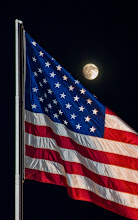
I was hoping to get to do this sooner, however, life has a way of setting priorities for you. Recently we went to a "star party" Unfortunately the viewing conditions were not the most optimal. With minor overcast and patches of hazy clouds prevented some really outstanding images. However, I did the best with the conditions available and didn't take an abundance of photo's because of the conditions. I was able to use some really nice Canon L series Lenses with a 2.8 f stop.
The star party gathering was roughly 126 Miles northwest of Phoenix. The 2.8 f stop lenses allowed me to be able to get the best light gather I could. Anything faster obviously gets pricey though would have yielded better results with the stars. A lot of the tips I gave in my Lightning Photography Blog also apply here so I will try not to repeat them.
Unfortunately I haven't had the budget to invest in extra gear that will improve my astro-photography, however, I do know how it all works and can recommend some things and give tips. Orion Telescopes has quite a variety of some of the equipment you will want to invest in.
T-Mount Adapters. These are very inexpensive and allow you to turn your telescope into a giant lens! Currently at Orion Telescopes they are selling for $16.95.
Universal Camera Mount. This utility is excellent for a telescope that can't really be adapted using the t-ring system or for a setup that you desire to use filters with certain eye pieces or just different eye pieces in general for different fields of view.
Plungers and Remote Releases. These are a MUST have. If you want star trails, or you want to have any more functionality than a simple 30 second or less exposure, you want one of these. They can be prices, ranging from $25 (for the simple rebel infra red remote) to over $120 for the premium timers with release. Along with the advantage of timing and long exposures you also get the advantage of less vibration that can be caused by pressing the shutter release button physically located on the camera.
 Filters! These can make a HUGE difference. The primary key filter I want to address is the H-Alpha, that is, the Hydrogen Alpha filter. This filter does a number of things. It allows your digital imaging sensor to pick up on the light wavelengths that are being filtered out that our visible light sensitive eyes can't see. Orion is one of the most splended constellations you can view. Orion in H-Alpha website gives a good showing of the differences of H-Alpha. There are also places that will actually remove the filter on your digital camera and can be an affordable way to turn your camera to a astro-imaging machine! I have also recently discovered a semi-affordable method. This Astronomik - H-Alpha 6nm CCD Filter - Canon EOS - clip in filter available from www.optcorp.com looks like it could be a viable solution. One location I've found that sells specially altered Canon Camera's is Hutech Astronomical Products. The best thing about H-Alpha is that you can do H-Alpha photography in massive light pollution and not see bad effects! It brings Astro-Photography to a level where you don't have to worry about the light pollution, which as you can tell, even 130 miles or so from a major city still produces a lot of unwanted light in the photographs!
Filters! These can make a HUGE difference. The primary key filter I want to address is the H-Alpha, that is, the Hydrogen Alpha filter. This filter does a number of things. It allows your digital imaging sensor to pick up on the light wavelengths that are being filtered out that our visible light sensitive eyes can't see. Orion is one of the most splended constellations you can view. Orion in H-Alpha website gives a good showing of the differences of H-Alpha. There are also places that will actually remove the filter on your digital camera and can be an affordable way to turn your camera to a astro-imaging machine! I have also recently discovered a semi-affordable method. This Astronomik - H-Alpha 6nm CCD Filter - Canon EOS - clip in filter available from www.optcorp.com looks like it could be a viable solution. One location I've found that sells specially altered Canon Camera's is Hutech Astronomical Products. The best thing about H-Alpha is that you can do H-Alpha photography in massive light pollution and not see bad effects! It brings Astro-Photography to a level where you don't have to worry about the light pollution, which as you can tell, even 130 miles or so from a major city still produces a lot of unwanted light in the photographs!The last thing I want to talk about is an automated tracking system. These are VERY crucial for longer exposures and deep sky photography. They are quite pricey but I can't stress enough how important they are for someone looking to get deeper into the arena of astro-photography. They need to be properly setup and carefully adjusted so that you can take hour long exposures and not get blur or tracking/streaking stars. One solution that looks affordable is available from Orion Telescopes. This *2nd* Teletrack AZ Tracking Mt is available currently for $199.96.
I hope these tips and references to locations can help some of you aspiring Astro Photographers improve in your skills as well as get more gear to make the images jump in quality leaps and bounds :)








No comments:
Post a Comment